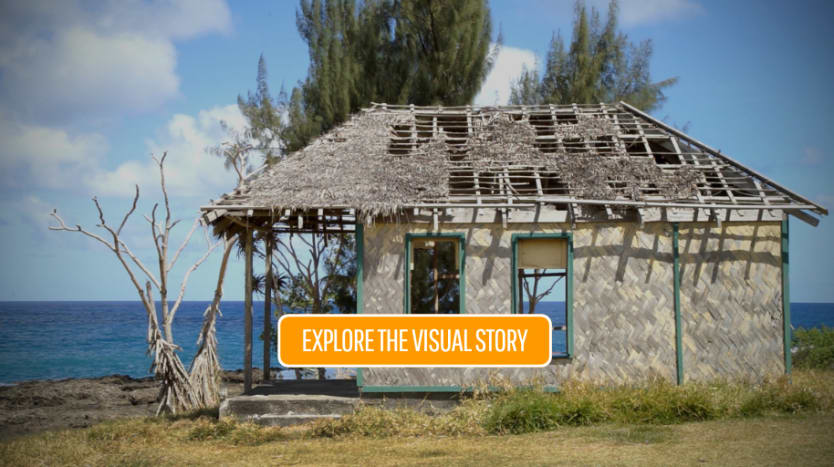Women are fighting climate change in the south Pacific, but need money

In the Pacific islands, where patriarchal structures are the norm, women’s needs have historically been neglected in climate responses that are largely run by international NGOs. In Vanuatu, that is changing as more local women take the lead on climate action. The challenge, however, lies in a lack of funding for local female-led initiatives.
“When the disaster hits, it’s the women who are there from response to recovery, so it makes no sense to have international bodies lead,” Yasmine Bjornum, executive director at local feminism-focused NGO Sista, told Devex.
An archipelago of 83 islands, Vanuatu is the world’s most vulnerable country to disasters according to the 2021 World Risk Index. Women’s leadership in disaster and climate resilience is increasingly being acknowledged, according to research by UN Women. But limited funding caps what they’re able to do. In Vanuatu, resources and support can be scarce, Bjornum shared, affecting groups’ capacity to address the full spectrum of women's rights issues effectively.
Only 10% of global climate finance goes to local communities globally — and only 0.01% of global climate finance goes toward projects tackling both climate change and women’s rights, according to the United Nations Development Programme. Vanuatu itself receives little climate finance: Across 2018 and 2019, it received $54 million while elsewhere in the region, the Solomon Islands received $240 million and Papua New Guinea received $198 million. Figures for resource allocation for joint gender and climate programs in the country are currently not available.
“Normally, there’s a general project proposal that comes in to support local civil society, but no statements to highlight the importance of the allocation of subgrants to women, which is one of the reasons why we still have a lot of disparities in terms of women's leadership [versus that of men],” said Anne Pakoa, a renowned local women’s rights activist.
Many, like Rita Kaltong, a mother of four living in Epao village on the Efate island, are involved in disaster response and resilience projects, but in a volunteer capacity. When a tropical cyclone hits, Kaltong is one of three women in the village now trained and charged with ushering her community of around 180 people to the nearby evacuation shelter; a sturdy, one-story school building beside the main road.
Keep reading: Join Devex on the ground in Vanuatu as we explore how women are taking an active role in the country’s climate response in this visual story.
Dig into Roots of Change, a series examining the push toward locally led development.
This is an editorially independent piece produced as part of our Roots of Change series. Click here to learn more.

Search for articles
Most Read
- 1
- 2
- 3
- 4
- 5
